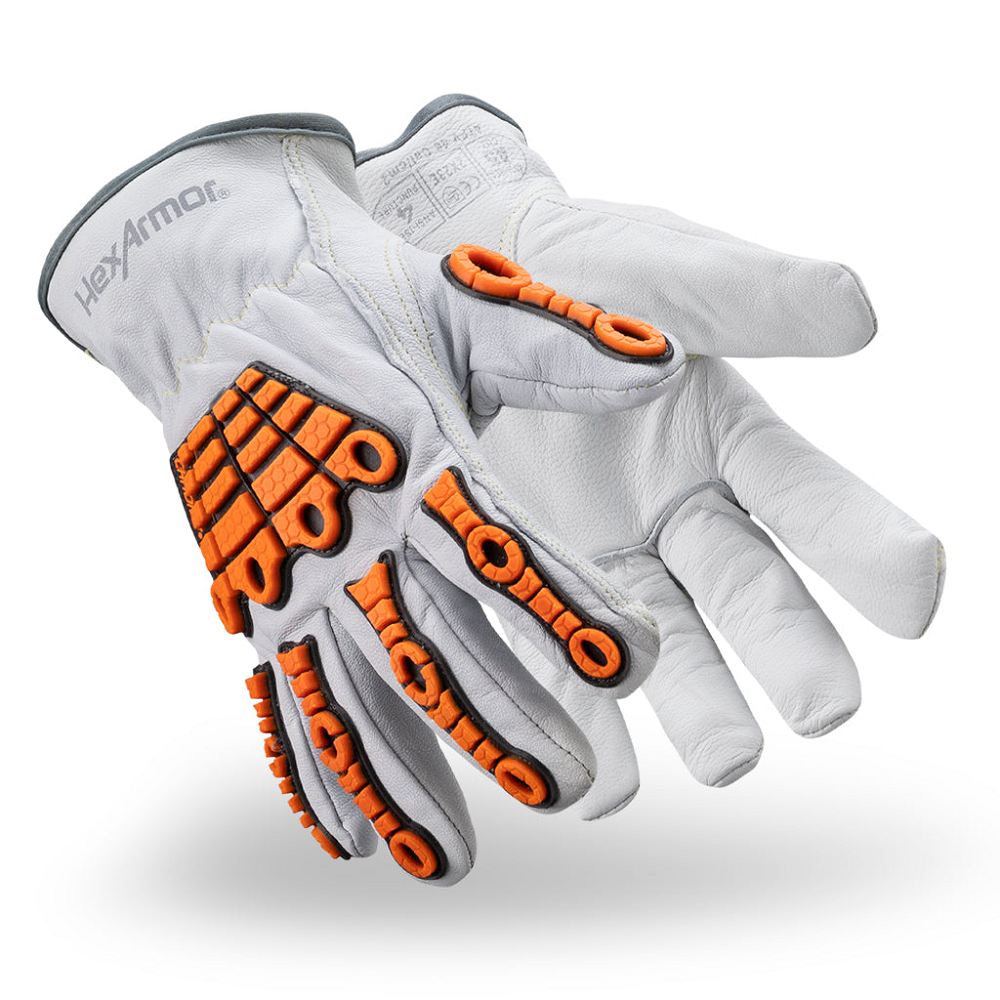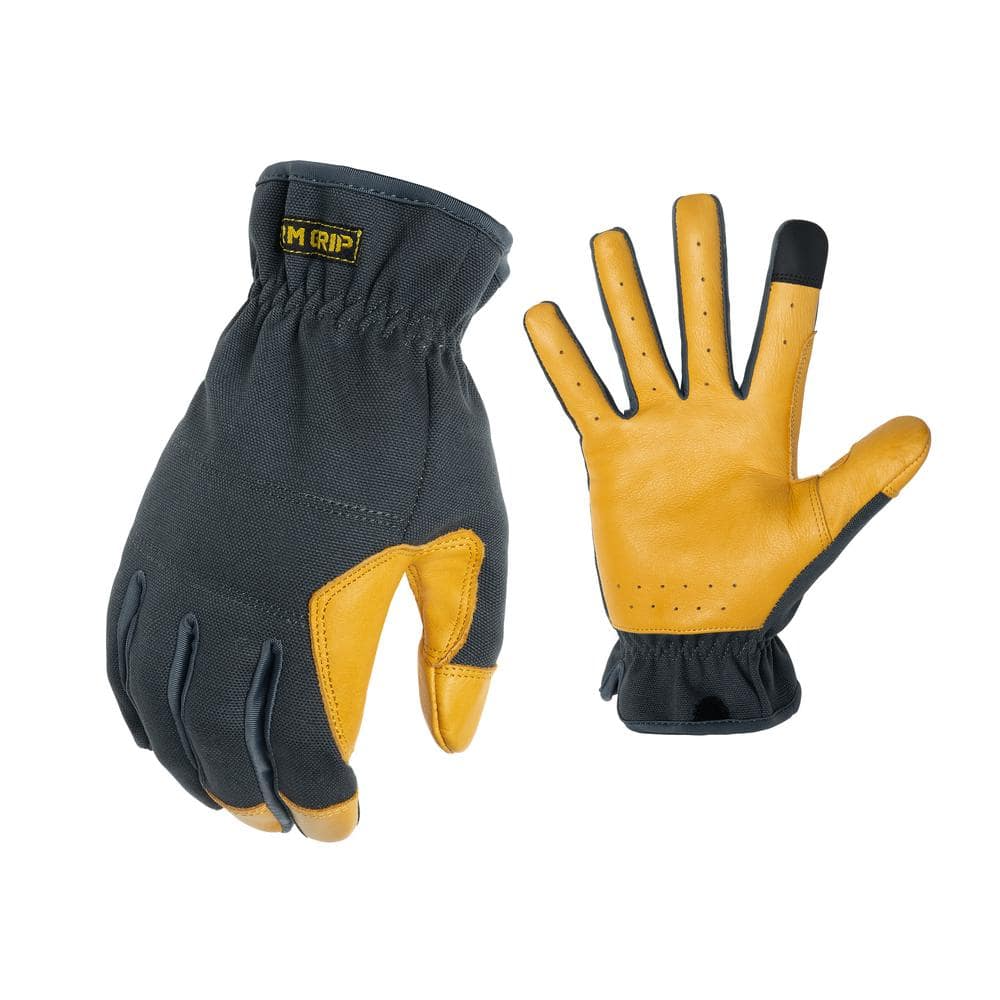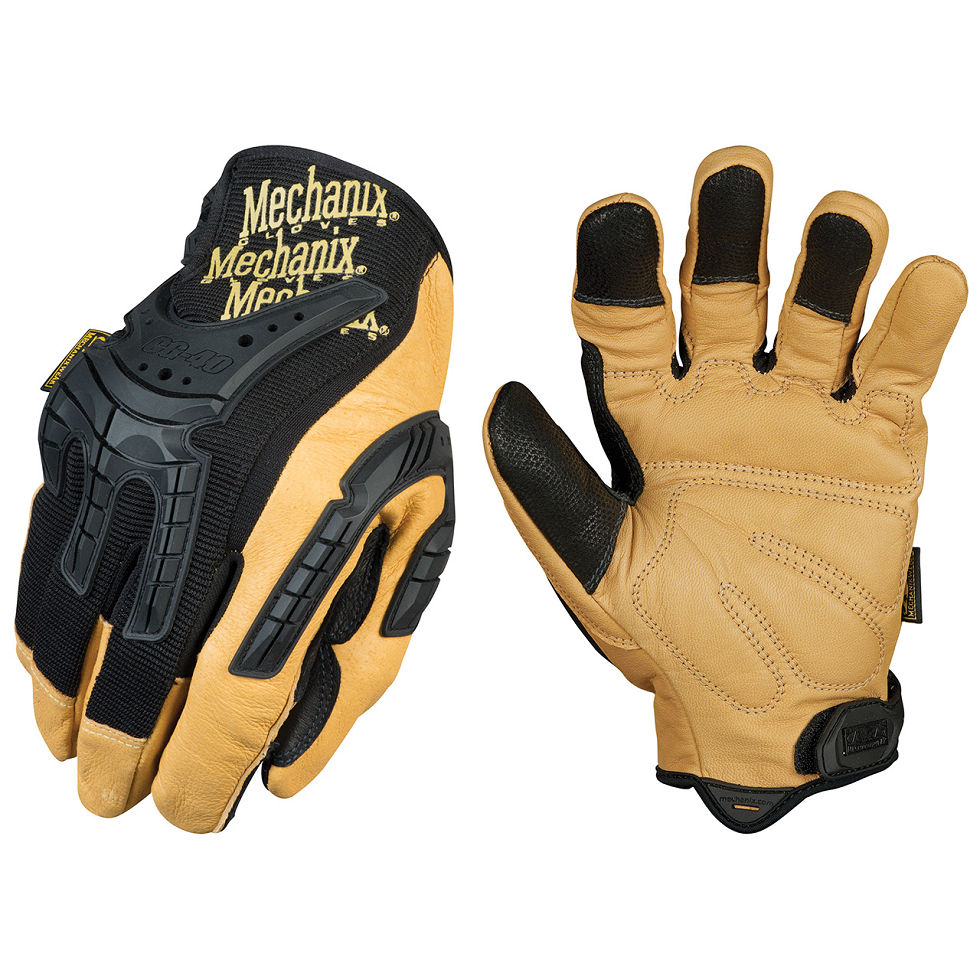Leather work gloves are more than just protective gear; they are a vital component for many people working in various industries. From construction sites to woodworking shops, these gloves offer durability, comfort, and protection. In this article, we will explore the many aspects of leather work gloves, their benefits, types, and maintenance.
What Makes Leather Work Gloves Special?
Superior Protection
Leather work gloves provide excellent protection for your hands. The material is tough and can resist cuts, abrasions, and punctures. This makes them suitable for a variety of tasks. Whether you are handling sharp tools or heavy materials, these gloves act as a barrier between your hands and potential injuries. Their ruggedness helps reduce the likelihood of accidents, allowing you to work more confidently.
In addition to their durability, leather gloves can also offer thermal protection. Many types of leather are good insulators, keeping your hands warm in cold weather. This is particularly important for outdoor workers who face harsh conditions. They also offer some level of waterproofing, depending on the type of leather used. This can be beneficial when working in wet environments.
Comfort and Fit
Comfort is another reason many people choose leather work gloves. The material molds to the shape of your hands over time, creating a snug fit that feels good while you work. Unlike synthetic materials, leather allows for better breathability. This keeps your hands cool even during long hours of hard work. Additionally, leather gloves often come with padded palms or soft linings, adding to their comfort.
Breathability and comfort reduce hand fatigue. If your gloves fit well and feel good, you can work longer without discomfort. This is essential for those who perform repetitive tasks that require dexterity. A well-fitting glove enhances finger movement and grip, making it easier to handle tools and materials.
Types of Leather Work Gloves
Cowhide Leather Gloves
Cowhide leather gloves are some of the most popular in the industry. They are durable, resistant to wear, and suitable for a wide range of tasks. The natural oils in cowhide make it water-resistant, adding to its longevity. These gloves are great for heavy-duty tasks in construction and manufacturing.
One of the main benefits of cowhide gloves is their price point. They often offer excellent value for money due to their longevity. You can find them in various styles, including those with reinforced fingers and knuckles for extra protection. This feature is particularly useful for workers who often deal with heavy materials.
Goatskin Leather Gloves
Goatskin leather gloves provide a more supple feeling compared to cowhide. This softness allows for superior dexterity, making them ideal for tasks that require precision. Workers in industries like automotive or electrical might prefer goatskin gloves for their flexibility.
In addition to their great fit, goatskin gloves also resist abrasion and wear. This makes them a long-lasting option for those who require fine motor skills but still need protection. While they may be slightly more expensive than cowhide, their quality can justify the price. Especially for professionals who rely heavily on dexterity.
Pigskin Leather Gloves
Pigskin leather gloves are another great option. They are known for their unique grain and flexibility. These gloves also offer good durability while remaining breathable. This makes pigskin a popular choice for workers in warmer climates.
One advantage of pigskin gloves is their ease of maintenance. They can withstand moisture better than other types of leather. This can lead to a longer lifespan even when exposed to elements. They are a smart choice for those who need reliable gloves without excessive care.
How to Choose the Right Leather Work Gloves
Understand Your Needs
Choosing the right leather work gloves starts by understanding your needs. Consider the tasks you will be performing. Will you be working with heavy materials, or will you need precision? Assessing your work environment is crucial. Identify the types of hazards you may encounter.
Different gloves provide varying levels of protection and functionality. A glove that excels in one area might fall short in another. For instance, if you’re working with heavy machinery, you may need a thicker glove. If you’re performing delicate tasks, focus on dexterity and grip.
Check the Size and Fit
Another important aspect is the size and fit of the gloves. Ill-fitting gloves can lead to loss of grip or even accidents. It can also cause discomfort, making it difficult to work efficiently. Always try on gloves before purchasing. Ensure there’s enough room for your fingers while allowing for movement.
Look for gloves with adjustable features as well. Velcro straps or elastic bands will help keep the gloves snug on your hands. This will ensure they don’t slip off during work. Always prioritize comfort over style; a well-fitting glove will perform better and protect your hands more effectively.
Evaluate the Material
The type of leather is crucial in your decision. Different tasks call for different materials. While cowhide is sturdy, goatskin allows for agility. Consider how often you’ll use the gloves. If you’re a heavy user, investing in top-quality leather can be worthwhile.
Check for additional features as well. Some gloves have reinforced stitching or padding for added protection. Make a list of must-haves before shopping so you can narrow down your options. Quality gloves may cost more upfront, but they will save you money in the long run due to their durability.
Maintaining Your Leather Work Gloves
Cleaning
Proper care will extend the lifespan of your leather work gloves. Cleaning them is the first step. Remove any dirt or grime immediately after use. A soft brush or cloth can help you do this. Avoid soaking them in water, as leather can become damaged.
For deeper cleaning, use a damp cloth with a mild soap solution. Wipe down the exterior, ensuring you do not saturate the leather. After cleaning, allow the gloves to air dry. Do not expose them to direct sunlight or heat, as this can cause the leather to crack.
Conditioning
Conditioning your gloves is just as important as cleaning. Leather can dry out over time, leading to rigidity. To prevent this, use a good leather conditioner. Apply a thin layer with a soft cloth, rubbing it into the leather gently. This will keep the material supple and help protect it from moisture and dirt.
Regular conditioning can prolong the life of your gloves significantly. Aim to condition them every few months, or whenever they start to feel dry. This will keep them looking good and performing well.
Storage
How you store your leather work gloves also affects their longevity. Store them in a cool, dry place away from direct sunlight. Avoid crumpling or folding them, as this can create creases or cracks in the leather. Instead, lay them flat or hang them up if possible.
Consider using a storage bag or container that allows for ventilation. This will help prevent moisture build-up, which can lead to mold or mildew. Keeping your gloves in good conditions helps maintain their quality for future use.
The Impact of Quality Leather Work Gloves
Worker Safety
High-quality leather work gloves contribute directly to worker safety. By providing ample protection against hazards, they reduce the risk of injuries significantly. This is especially crucial in industries where hand injuries are common.
Investing in good gloves can also improve overall productivity. Workers feel more confident when they are protected. They can focus on their tasks without worrying about potential accidents. Good quality gloves lead to safer workplaces and increased efficiency.
Cost-Effectiveness
While quality leather gloves may cost more upfront, they prove to be more cost-effective in the long run. Cheaper gloves often wear out quickly and need replacement. This can result in more expenses over time. On the other hand, quality leather gloves last longer and require less frequent replacement.
When you consider the time and money saved, the investment becomes clearer. It’s essential to weigh your options carefully. Prioritize durability and quality over the initial cost to save money over time.
Real-World Applications of Leather Work Gloves
Construction and Heavy Industry
In the construction field, leather work gloves are a necessity. Workers face numerous hazards daily, including sharp objects, heavy machinery, and extreme weather. High-quality leather gloves provide the necessary protection against these dangers.
These gloves also allow for a stronger grip when handling tools and materials. A reliable grip is essential for safety and efficiency. With the right gloves, workers can perform their tasks effectively while minimizing the risk of injury.
Agriculture and Outdoor Work
The agricultural sector values leather work gloves for both protection and comfort. Farmers often work in varying weather conditions, from sun to rain. Leather gloves offer durability while allowing for flexibility in tasks.
Outdoor workers appreciate gloves that can withstand the elements. Whether handling tools or doing manual labor, having a good pair of gloves can make a significant difference. Choosing the right gloves can enhance comfort and protection for daily outdoor tasks.
Conclusion
Leather work gloves are essential for anyone looking to protect their hands while working. Their durable nature, comfort, and versatility make them a must-have. By choosing the right type, maintaining them properly, and understanding their benefits, you can ensure maximum protection and efficiency in your work tasks.
From construction to gardening, leather gloves serve various industries well. Investing in a quality pair will not only safeguard your hands but also provide comfort and flexibility in your work. As you move forward, remember to prioritize quality and care when selecting and maintaining your leather work gloves.



